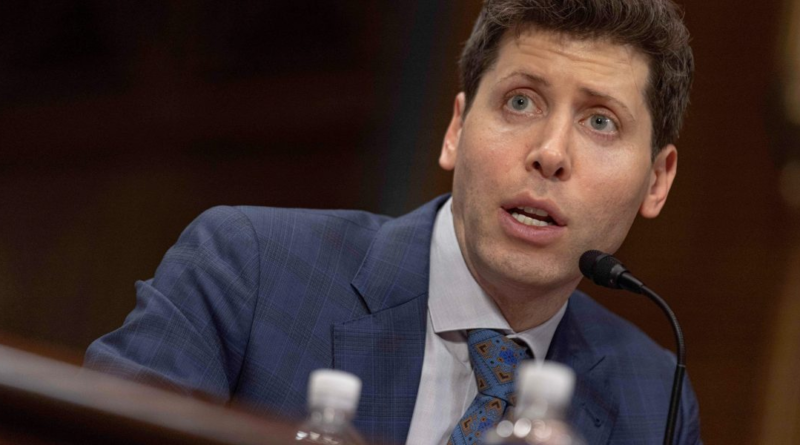Silicon Valley is knowingly violating ethical A.I. principles. Society can’t respond if we let disagreements poison the debate
With criticism of ChatGPT much in the news, we are also increasingly hearing about disagreements among thinkers who are critical of A.I. While debating about such an important issue is natural and expected, we can’t allow differences to paralyze our very ability to make progress on A.I. ethics at this pivotal time. Today, I fear that those who should be natural allies across the tech/business, policy, and academic communities are instead increasingly at each other’s throats. When the field of A.I. ethics appears divided, it becomes easier for vested interests to brush aside ethical considerations altogether.
Such disagreements need to be understood in the context of how we reached the current moment of excitement around the rapid advances in large language models and other forms of generative A.I.
OpenAI, the company behind ChatGPT, was initially set up as a nonprofit with much fanfare about a mission to solve the A.I. safety problem. However, as it became clear that OpenAI’s work on large language models would be lucrative, OpenAI pivoted to become a for-profit company. It deployed ChatGPT and partnered with Microsoft—which has consistently sought to depict itself as the tech corporation most concerned about ethics.
Both companies knew that ChatGPT violates, for example, the globally endorsed Unesco AI ethical principles. OpenAI even refused to publicly release a previous version of GPT, citing worry about the same kinds of potential for misuse that we are now witnessing. But for OpenAI and Microsoft, the temptation to win the corporate race trumped ethical considerations. This has nurtured a degree of cynicism about relying on corporate self-governance or even governments to put in place the necessary safeguards.
We should not be too cynical about the leaders of these two companies, who are trapped between their fiduciary responsibility to shareholders and a genuine desire to do the right thing. They remain people of good intent, as are all those who raise concerns about the trajectory of A.I.
The tension within the field of A.I. ethics is perhaps best exemplified in a recent tweet by U.S. Sen. Chris Murphy (D-Conn.) and the response by the A.I. community. In discussing ChatGPT, Murphy tweeted: “Something is coming. We aren’t ready.” And that’s when the A.I. researchers and ethicists piled on. They proceeded to criticize the senator for not understanding the technology, indulging in futuristic hype, and focusing attention on the wrong issues. Murphy hit back at one critic: “I think the effect of her comments is very clear, to try to stop people like me from engaging in conversation, because she’s smarter and people like her are smarter than the rest of us.”
I am saddened by disputes such as these. The concerns that Murphy raised are valid, and we need political leaders who are engaged in developing legal safeguards. His critic, however, is not wrong in questioning whether we are focusing attention on the right issues.
To help us understand the different priorities of the various critics and, hopefully, move beyond these potentially damaging divisions, I want to propose a taxonomy for the plethora of ethical concerns raised about the development of A.I. I see three main baskets:
The first basket has to do with social justice, fairness, and human rights. For example, it is now well understood that algorithms can exacerbate racial, gender, and other forms of bias when they are trained on data that embodies those biases.
The second basket is existential: Some in the A.I. development community are concerned that they are creating a technology that might threaten human existence. A 2022 poll of A.I. experts found that half expect A.I. to grow exponentially smarter than humans by 2059, and recent advances have prompted some to bring their estimates forward.
The third basket relates to concerns about placing A.I. models in decision-making roles. Two technologies have provided focal points for this discussion: self-driving vehicles and lethal autonomous weapons systems. However, similar concerns arise as A.I. software modules become increasingly embedded in control systems in every facet of human life.
Cutting across all these baskets is the potential misuse of A.I., such as spreading disinformation for political and economic gain, and the two-century-old concern about technological unemployment. While the history of economic progress has primarily involved machines replacing physical labor, A.I. applications can replace intellectual labor.
I am sympathetic to all these concerns, though I have tended to be a friendly skeptic toward the more futuristic worries in the second basket. As with the above example of Sen. Murphy’s tweet, disagreements among A.I. critics are often rooted in the fear that existential arguments will distract from addressing pressing issues about social justice and control.
Moving forward, individuals will need to judge for themselves who they believe to be genuinely invested in addressing the ethical concerns of A.I. However, we cannot allow healthy skepticism and debate to devolve into a witch hunt among would-be allies and partners.
Those within the A.I. community need to remember that what brings us together is more important than differences in emphasis that set us apart.
This moment is far too important.
Wendell Wallach is a Carnegie-Uehiro Fellow at Carnegie Council for Ethics in International Affairs, where he codirects the Artificial Intelligence & Equality Initiative (AIEI). He is emeritus chair of the Technology and Ethics study group at the Yale University Interdisciplinary Center for Bioethics.
The opinions expressed in Fortune.com commentary pieces are solely the views of their authors and do not necessarily reflect the opinions and beliefs of Fortune.


